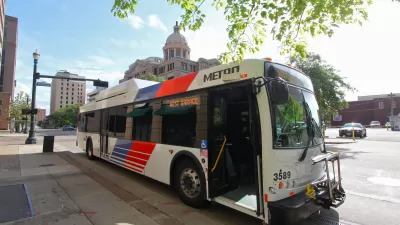Affluent areas face more demolitions than gentrifying areas in Houston and Harris County, according to the findings of a new report from the Kinder Institute of Urban research.

A new report by the Kinder Institute of Urban Research at Rice University examines seven case studies to highlight the different types of housing development that occur when a neighborhood gentrifies.
An article on the Kinder Institute's Urban Edge blog provides insight into the "Re-Taking Stock" report, listing a number of key findings from the report, including this bombshell: "Affluent areas that have gentrified or have faced no risk of gentrification saw more construction [and demolitions] than gentrifying areas, likely steering higher income housing growth away from gentrifying neighborhoods."
Another key finding gentrification from the report suggests that gentrifying neighborhoods (e.g., the Fifth Ward, Independence Heights, and the Third Ward) "face an elevated risk of quick turnover due to demolition patterns and townhome development near the boundaries of high-demand neighborhoods."
The report also makes a remarkable distinction for Houston as the national leader in urban infill. Development in the city's urban core (i.e., the Inner Loop) surpasses the total annual housing production of other major cities, according to the report.

Planetizen Federal Action Tracker
A weekly monitor of how Trump’s orders and actions are impacting planners and planning in America.

Chicago’s Ghost Rails
Just beneath the surface of the modern city lie the remnants of its expansive early 20th-century streetcar system.

San Antonio and Austin are Fusing Into one Massive Megaregion
The region spanning the two central Texas cities is growing fast, posing challenges for local infrastructure and water supplies.

Since Zion's Shuttles Went Electric “The Smog is Gone”
Visitors to Zion National Park can enjoy the canyon via the nation’s first fully electric park shuttle system.

Trump Distributing DOT Safety Funds at 1/10 Rate of Biden
Funds for Safe Streets and other transportation safety and equity programs are being held up by administrative reviews and conflicts with the Trump administration’s priorities.

German Cities Subsidize Taxis for Women Amid Wave of Violence
Free or low-cost taxi rides can help women navigate cities more safely, but critics say the programs don't address the root causes of violence against women.
Urban Design for Planners 1: Software Tools
This six-course series explores essential urban design concepts using open source software and equips planners with the tools they need to participate fully in the urban design process.
Planning for Universal Design
Learn the tools for implementing Universal Design in planning regulations.
planning NEXT
Appalachian Highlands Housing Partners
Mpact (founded as Rail~Volution)
City of Camden Redevelopment Agency
City of Astoria
City of Portland
City of Laramie





























